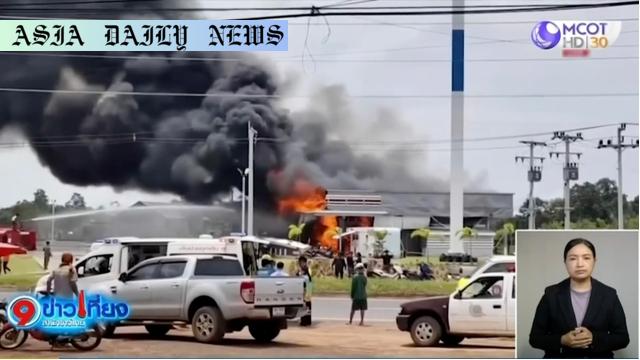Thai-Cambodia conflict: Tensions rise as deadly gunfire exchanged over disputed border regions, sparking diplomatic recalls.
- Thai-Cambodia conflict escalates with deadly cross-border gunfire.
- 11 fatalities and 28 injuries reported on the Thai side.
- Diplomatic relations downgraded between the two nations.
- Six killed in a Cambodian shelling on Sisaket Province gas station.

Introduction to the Thai-Cambodia Border Dispute
The recent exchange of fire between Thai and Cambodian troops has brought long-standing tensions in the region to the forefront. The conflict revolves around a contested border area, including a temple claimed by both sides. Thai authorities have reported 11 dead and 28 injured on their side, with the incident signifying an alarming escalation in violence.
The clashes reportedly began on Thursday morning, and fighting has persisted at several points along the border. Both countries accuse each other of initiating the skirmish, further straining their already fraught relationship. The exchange follows prior incidents, including a deadly confrontation in May and landmine-related injuries to Thai soldiers earlier this month.
Military Movements and Escalating Violence
The conflict has seen aggressive military deployments, with the Thai army using F-16 fighter jets to strike Cambodian targets. Cambodia has countered, asserting that it acted in self-defense, though it has yet to disclose information about its casualties or damages. These escalations have led to civilian casualties, including six deaths and additional injuries resulting from Cambodian shelling on a gas station in Thailand’s Sisaket Province.
The region has long been a flashpoint due to competing territorial claims, and recent allegations of Cambodia laying new landmines near the border, which Cambodia denies, have only heightened tensions. This volatile situation underscores the need for international mediation to avert further loss of life and diplomatic fallout.
Diplomatic Fallout and Broader Implications
Diplomatic relations between the two nations have quickly deteriorated. Thailand’s decision to recall its ambassador from Phnom Penh on Wednesday was met with Cambodia downgrading diplomatic ties and recalling its diplomats. These reciprocal steps underscore the seriousness of the situation and the growing divide between the two neighboring countries.
The consequences of this flare-up extend beyond regional security concerns. As members of ASEAN, both nations have an obligation to uphold peace, and the ongoing conflict threatens the stability and reputation of the bloc. Furthermore, the involvement of heavy military resources like fighter jets signals a dangerous escalation that could draw international scrutiny and intervention.



Commentary
The Gravity of the Thai-Cambodia Conflict
As tensions surge between Thailand and Cambodia, it has become evident that the long-standing border dispute is far from a diplomatic resolution. The escalation to deadly violence reflects the deep-seated animosity and complex historical grievances that have gone unresolved for years. Such conflicts often have a chain reaction, where one incident sparks a series of retaliatory measures, pushing both sides further from peaceful negotiations.
The use of sophisticated military assets like F-16 fighter jets on Thailand’s side and retaliatory shelling from Cambodia reveals the advanced levels of militarization around the border. This not only puts civilians at risk but also questions the proportionality of military responses. A structured and transparent mediation process within ASEAN or under UN auspices could help prevent further bloodshed and bring clarity to territorial claims.
The Role of Diplomacy in Conflict Mitigation
Diplomatic interventions are crucial at this juncture. However, the tit-for-tat recalls of ambassadors and downgraded relations highlight a breakdown in communication. This leaves no room for constructive dialogue, suggesting a lack of political will to resolve the issues. The international community, including ASEAN and neighboring countries, must play a mediating role to restore diplomatic ties and offer a platform for arbitration.
Beyond the immediate conflict, these skirmishes damage the credibility of the involved nations on the world stage. Peaceful coexistence is essential not just for the residents near the border but also for broader regional stability. Leaders from both nations need to prioritize diplomacy over aggression to avoid further casualties and economic repercussions.